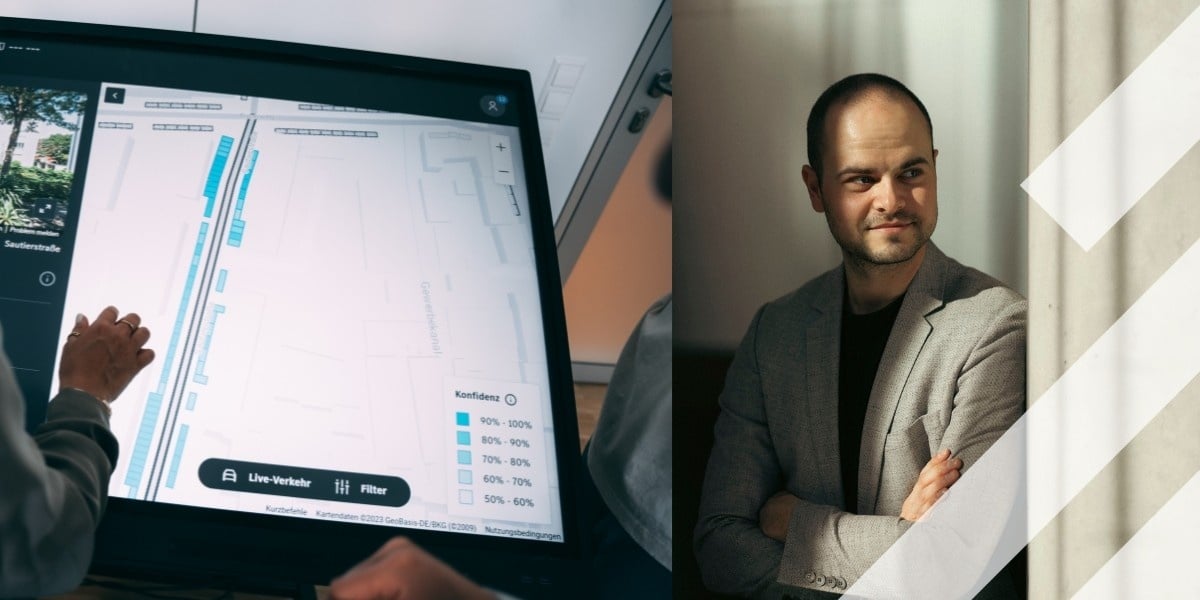Parking enforcement powered by Artificial Intelligence
How can we encourage compliance with on-street parking regulations to make better use of the public space and reduce congestion? Parking violations are a problem common to most major cities worldwide, which see their urban centers undesirably submerged and wish to curb this phenomenon. The evolution of cultures and the emergence of new technologies, coupled with potential modifications in legislative frameworks, suggest a new management for parking. How can artificial intelligence optimize enforcement of on-street parking to work on the change in behaviors rather than repression? ParkPredict Control is a tool that uses data to improve on-street parking enforcement. It is currently used in Amsterdam (Egis Parking Services) and Paris (Moovia) and won the Innovation Trail this year at Parkex (British Parking Association).
Context, issues and key learnings
Following the example of Belgium, the Netherlands, the United Kingdom, Portugal, Spain and Norway, France decriminalized parking enforcement and decentralized the associated functions in 2018. Once reserved for public agents such as the municipal police, ticketing can now also be carried out by certified third parties like private companies. The reform has rapidly helped cities increase their direct payment rate, jumping for example from 50 to 80% in Bordeaux, from 10 to 30% in Paris and from 35% to 90% in the United Kingdom!
Road congestion was also impacted because of less overstaying vehicles, thus promoting access to city centers and reducing pollution. Finally, the financial gains of optimized enforcement can be reinvested in more sustainable and public mobility infrastructures such as public transport and alternative modes (self-service bikes and cars, car sharing, electric vehicles), and in the development of park and ride facilities.
Another recurrent lesson to optimize enforcement functions is that the choice of technologies used is of utmost importance. In particular, enforcement can be facilitated with communicating systems for dematerialized payment and control. For instance, pay-by-plate mechanisms, both for parking meters and mobile payment applications, coupled with automatic number-plate recognition (ANPR) technologies for enforcement, are ideal to leverage efficient operations.
ParkPredict Control Technology
ParkPredict Control is a decision support system to optimize enforcement rounds and on-street parking compliance. A major problem for enforcement teams is to know where and when to patrol in order to plan effective rounds.
Existing alternatives are based on traditional statistics like averages per hour, day or zone. However, this approach focuses on a simple historical analysis of the data taken out of context and out of the dynamic environment of the city. Moreover, the amount of data required is prohibitive to work finely on logistic plannings per street and per hour. Finally, these methods are often carried out by hand, which makes the work tedious, unreplicable, subject to miscalculation and misinterpretation.
To overcome these constraints, Qucit develops innovative technologies in artificial intelligence (AI). ParkPredict Control uses machine learning algorithms to predict where and when the number of violations is highest, and thus prescribe areas to visit. The machine is therefrom able to determine the ideal route to optimize parking enforcement. A major advantage is the ability to accurately forecast and extrapolate the number of violations from a reasonable amount of historical observations. Moreover, the respective impacts of temporal and spatial variables can easily be decoupled, for recommendations by sector and period that are reliable, actionable and operational on the field.
Data enhancement
This technological solution consists of enriching enforcement data (positions and times of checks performed and tickets issued), by adding a large number of contextual data streams. These contextual data describe the city as realistically as possible according to the elements impacting usages and behaviors (eg, the number, location and type of parking spaces, payment data by parking meter or mobile phone, the position and occupancy of off-street car parks, points of interest such as restaurants, schools or shops, weather, calendar data such as the hour, day of the week, bank and school holidays).

After contextual modelling, the machine learning calculation engines developed at Qucit work in two steps: calibration and prediction. During calibration, the models first train to learn the relationships between behaviors and context on all data collected in history. For example, the model assimilates that there are more violations on Fridays at 6 pm in a particular part of the city because many bars and restaurants are present. Once calibrated, models are able to predict the number of violations for a given location, since they have already observed similar contexts in the past.
Each new control also generates data that is injected into our predictive models to verify and improve their reliability. Thus, the models are recalibrated periodically, adding new data collected to the existing data. Predictive models can thus increase their performance and adjust to changes in behavior. Data related to urban infrastructure or socio-economic variables are also updated regularly to adapt to city structural changes.
The recommendations are then made available to team managers in a dashboard and to agents on foot or drivers of ANPR vehicles via a mobile application. Violations against paid, reserved, obstructive, illegal and dangerous parking may also be included.

ParkPredict Control is an all-in-one tool for effective on-street parking enforcement powered by artificial intelligence. It becomes easier to fight against issues caused by violations and especially against urban congestion.
Customer Testimonial
“ParkPredict Control is accessible both in the office and on the move and only one demonstration is required: ergonomic and intuitive, the tool is very easy to use. It is a real decision-making tool: we save time because predictions are accessible in one click and ratios are automatically calculated and visible on a heat map, which allows us to devote more time to developing our control strategy”
Cécile MOHAMED, Operations Manager - MooviaShare your story
Do you have an innovation, research results or an other interesting topic you would like to share with the professionals in the infrastructure, traffic management, safety, smart mobility and parking industry? The Intertraffic website and social media channels are a great platform to showcase your stories!
Please contact our Sr Brand Marketing Manager Carola Jansen-Young.
Are you an Intertraffic exhibitor?
Make sure you add your latest press releases to your Company Profile in the Exhibitor Portal for free exposure.
Get up to speed on the mobility industry - our newsletter straight to your inbox!








